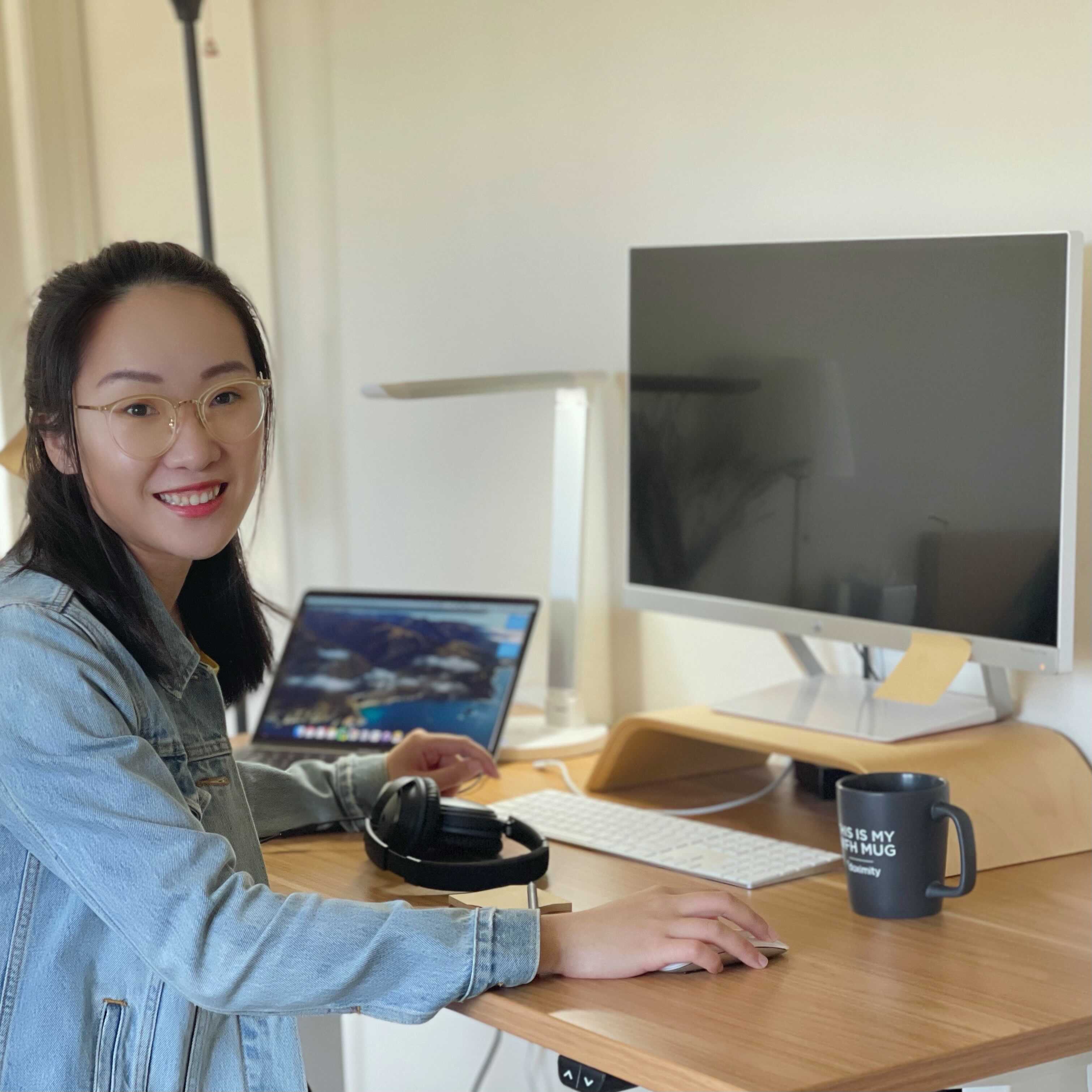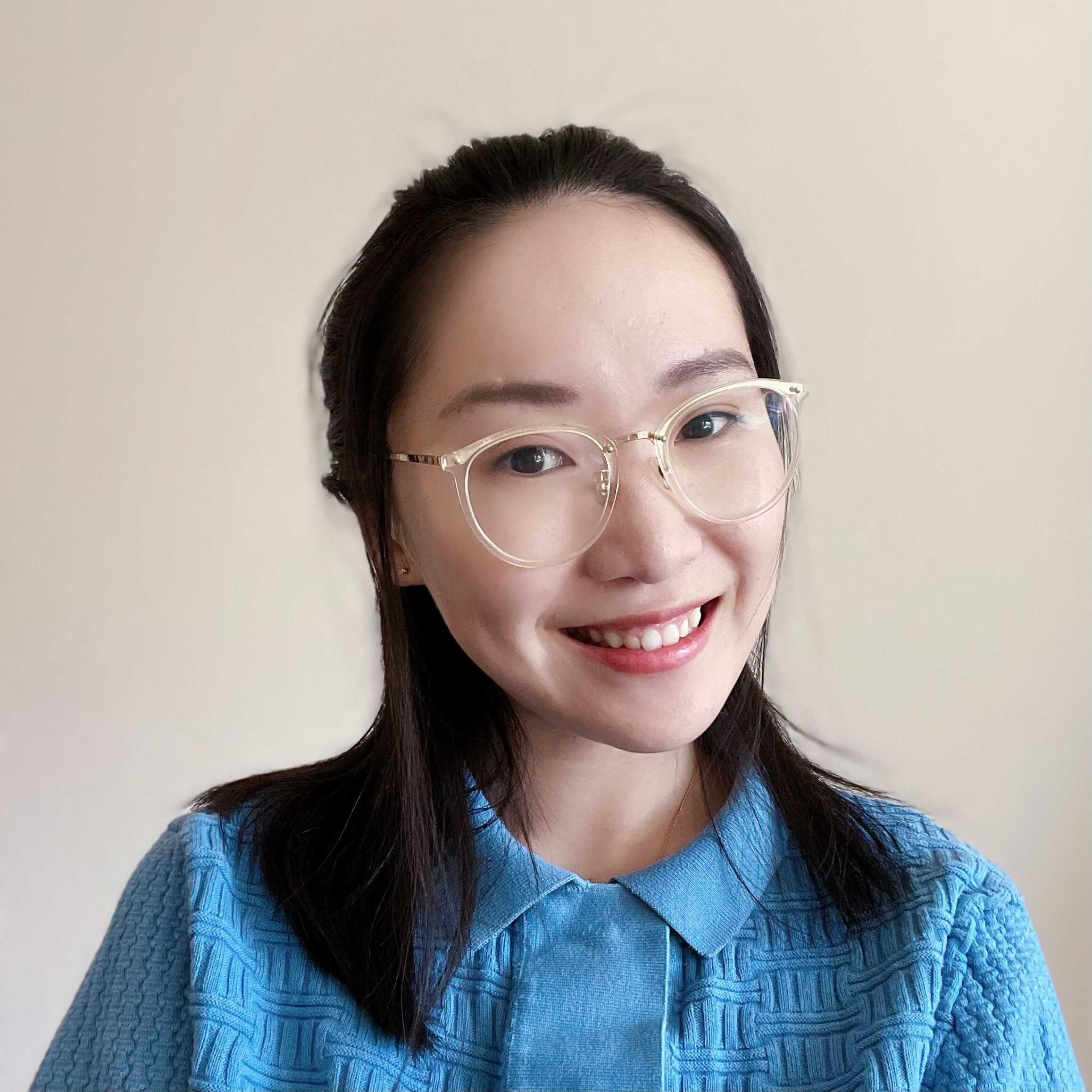Chris:
Can you tell me a little bit about yourself and your role at Doximity?
Wendy:
I’m a Senior Data Analyst on the Careers product team at Doximity. I’ve been at Doximity full time for a little over 3 years and before that, I also was with Doximity for my college internship for 4 months as well. In my free time, I enjoy outdoor activities like surfing, hiking, and snowboarding.
Chris:
How has it been growing at Doximity and seeing the company evolve over the years?
Wendy:
It’s amazing to see how Doximity has changed, especially the data team. Since I have joined, we have grown from around 10 people to now over 75 and we continue to grow every day. Also, seeing our infrastructure be built up has been very impressive. The number of projects that we’re able to do has increased so much. I feel very lucky to witness and be a part of the growth of our team.
Chris:
What is your favorite part of the role? What do you enjoy working on most?
Wendy:
My favorite part about my role is the wide range of data work that I get to do. I’m always doing something new. I have the ability to jump around to different projects, tackle different problems, and explore different technologies. As a result, I feel that I have a depth of diverse experience which allows me to always find a creative solution. This has been tremendously helpful for me as a tech lead to be able to offer technical guidance to my team.
Also, I really enjoy the data team’s role in the product development cycle. We are involved from the beginning. In fact, a lot of the data solutions that our team comes up with originated from diagnostic data analysis. We have a lot of agency to identify problems and determine the solutions based on what we see the best fit.

Chris:
Can you tell me more about the Careers team? What does your team specialize in and what kinds of projects, in general, do you work on?
Wendy:
In a nutshell, the careers team helps match healthcare professionals within Doximity’s network with the right jobs. In the US, we have over 70% of doctors and 45% of nurse practitioners and physician assistants as a part of Doximity’s network. Our job is to build data solutions to allow more precise, personalized matching of these healthcare professionals with the right opportunities.
To be more specific, our projects range from building recommendation systems to classification models to developing job inventory control systems and building data pipelines for email digests. We build a lot of data-driven solutions around how to best match healthcare professionals with the right jobs.
Chris:
What is “a day in the life” like for you as a Senior Data Analyst on the Careers team?
Wendy:
My day usually starts with helping and answering questions from my teammates who live in other time zones. This is one of the many efforts that we try to do at Doximity to try to tailor our workflow to be remote first. We actually had quite a few remote employees even before the pandemic, so the transition to a fully remote team has not been too challenging.
Then, a typical day usually includes meeting with product and data team members to talk through a specific task and brainstorm solutions together. Data plays a key role in the product development cycle, so these types of discussions are embedded in my day-to-day life.
The rest of my day I get to spend on development work. Depending on the problem that I’m working on, my work will range from root cause analysis, metric tracking and dashboard design, data engineering work such as building email pipelines, or data science work like building classification models. There’s a wide range of things that I get to work on in my team.
Chris:
That’s really interesting. Are there any projects that you are currently working on that you’re particularly excited about?
Wendy:
I have recently been working on a State Machine project. For context, historically our product’s prioritization system used a lot of complex business rules to simulate the clinician transition process. The beginning of this project was a diagnostic analysis that identified how difficult tracking the different states that our clinicians can travel through our dynamic prioritization system.
It is important to have a comprehensive view of all these dynamic clinician journeys so that we can tailor their interaction with our product based on their historical engagement. “State” in this context means whether the clinician has received an email informing them about the healthcare jobs available and their engagement with these jobs. So there is an “engaged” state and a “not engaged” state, and the transitions between the states are dynamic.
Relying entirely on complex business rules hindered our ability to accurately predict total volume. To address this problem, our team proposed to the business team a new solution, which is a state machine design, to allow clear visibility of clinician transitions between different eligible states. This is how, in short, analysis initiated the project.

Chris:
What is teamwork at Doximity like?
Wendy:
I worked with a few cross-functional teammates on this project. I worked mostly with data engineers and product managers but in different phases. In the ideation phase, I worked closely with the product team brainstorming the desired clinician journeys within our careers product ecosystem. And then from there, I translated the desired behaviors into a set of engineering designs. Since this is an engineering-heavy solution, I also worked closely with data engineers and machine learning engineers on my team to iterate on the engineering design. During the implementation phase, they also offered a lot of suggestions through the form of code review or code pairing sessions.
At the end of this project, we also hosted a Show & Tell session to ensure that the knowledge gained from this project was passed on to the general data team as well. I would say that we are a pretty integrated team and our projects usually involve collaboration with different stakeholders.
Chris:
That’s great, it sounds like the project was a very collaborative process. What were some of the technical skills that were most important for the success of this project?
Wendy:
I would say that one of the key skills to have is the ability to use analytical skills to determine the best-suited engineering solution. The project started with analysis and then analysis helped identify what the best engineering solution would be. Usually, in our team, the process we’ve been trying to do is to leverage data to identify a problem or an issue and from there we gather information, data, and observations about the problem. We also follow a testing approach by testing solutions with a proof of concept analysis. From the proof of concept, we are able to assess whether the solution brings an increase in value to the business. From there, we will apply our data solutions. So I would say, including analysis in the initial product decision-making process is very crucial to this project.
Chris:
So it’s less about knowing a specific skill like python or spark and more about knowing how to make the right decisions. That sounds great. What has been difficult about this project?
Wendy:
I would say, the most difficult part was owning the project from end to end. That meant owning the project from the problem to the solutions to the final implementation and actually measuring the success of the solution. And personally, I am coming from a non-software engineering background, so implementing an engineering solution was challenging for me. It required a lot of learning time for me to deepen my understanding of engineering concepts. I’m very grateful for the learning opportunity that Doximity has provided me. I couldn’t have done this project without my teammates’ guidance and support along the way.
Chris:
You mentioned evaluating the success of the project. Could you tell me more about how you measure project success?
Wendy:
The success of the project was being able to clearly visualize the clinician journey within our product ecosystem. In the end, not only had we built a software engineering solution to enable clinician transitions. We also built a dashboard to visualize these transitions in a Sankey diagram which solved the problem by actually allowing our team to see and have a holistic view of a complex system.
Chris:
What has been the most fun about this project?
Wendy:
I would say, the best part is seeing how the data team can build a solution that shapes the way clinicians interact with our product and bring increasing value to the business. Looking back, it’s amazing to see how this project started with a root cause analysis and ended with a Sankey visualization. Analysis sparked the software solutions and in the end, the analysis also allowed the solution to shine in the form of the metric visualization.
Chris:
Sounds like a great end-to-end experience. What excites you about where your team is going?
Wendy:
My team has grown a lot, doubled in size in the past year, which is very exciting. Also, to see that our team has invested a lot of time and a lot of resources in machine learning infrastructure. I’m excited to see where our machine learning and really any data solution can help our product continue to innovate. I also look forward to building many more exciting products and have an immediate impact alongside some of the most talented and humble teammates.

Chris:
Final question - what is your favorite Doximity memory?
Wendy:
Believe it or not, my favorite memory is from 2020. I participated in Doximity’s task force in launching a Covid-19 urgent healthcare staffing needs page. This helped mitigate the staffing shortages in the healthcare frontline during the pandemic. I have never felt more proud of my work than knowing that I was able to help make a difference in the medical community through my work at Doximity.
Chris:
That’s amazing. You had the skills and were able to make an impact at the right time. Thanks so much for your time, Wendy!
Big thanks to Wendy Wei for the interview, all the reviewers who helped with this article, and Hannah Gambino for the illustration.
Be sure to follow @doximity_tech if you'd like to be notified about new blog posts.
